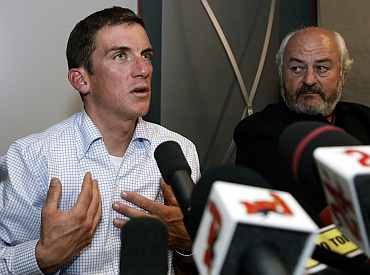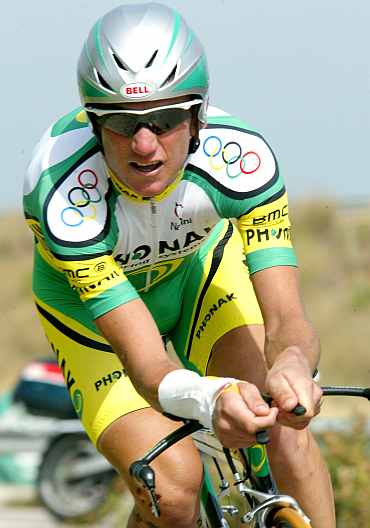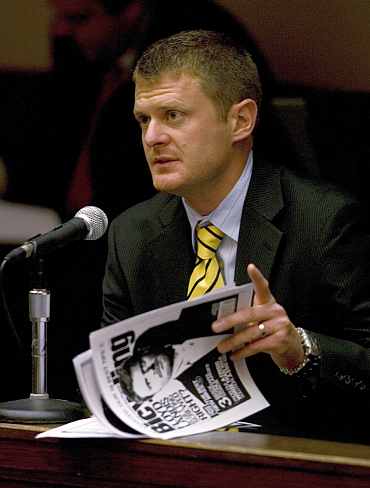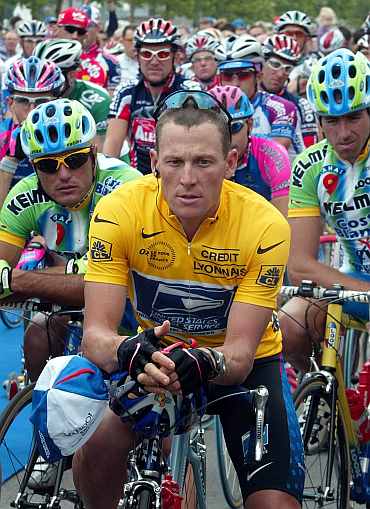
Tyler Hamilton, who was allowed to keep his Athens Olympics gold medal despite failing a doping test, has finally confessed to cheating and accused other top cyclists, including Lance Armstrong, of doing the same.
In an interview to be aired by "60 Minutes" on Sunday, Hamilton, ended years of denials by finally admitting to using performance-enhancing drugs but insisted he was not alone.
The 40-year-old said he witnessed his former team mate Armstrong inject himself with the blood-booster during the 1999 Tour de France, which Armstrong won.
"(Armstrong) took what we all took... there was EPO (erythropoietin)... testosterone... a blood transfusion," Hamilton said in an excerpt released by the CBS television network.
"I saw (EPO) in his refrigerator. I saw him inject it more than one time, like we all did, like I did many, many times," he added.

Armstrong, who won the Tour de France seven times, has always denied taking banned substances but has repeatedly had to fend off accusations despite never having failed a drugs test.
His lawyer, Mark Fabiani, said on Thursday that Hamilton's accusations about Armstrong were untrue.
"Hamilton is actively seeking to make money by writing a book and now he has completely changed the story he has always told before so that he could get himself on "60 Minutes" and increase his chances with publishers," Fabiani said.
"But greed and a hunger for publicity cannot change the facts: Lance Armstrong is the most tested athlete in the history of sports."
Hamilton said he had decided to come clean after he was subpoenaed by a grand injury currently investigating Armstrong after another of his former team mates pointed the finger at him.

Floyd Landis, who won the 2006 Tour de France but was stripped of his victory after failing a dope test, made similar accusations against Armstrong when he finally confessed to cheating after spending four years and $1 million protesting his innocence.
No charges have been laid against Armstrong, who retired in February after one of the most successful and controversial careers in professional cycling.
The Texan was diagnosed with testicular cancer in 1996 but recovered and returned to racing, winning the Tour de France an unprecedented seven consecutive years, from 1999 to 2005.
He quit when he was at the top, but made a comeback in 2009, at 37, saying he partly missed the thrill of competition but was driven by a greater cause, to help promote cancer awareness.

Hamilton was a support rider of Armstrong's at the US Postal Service team for his first three Tour de France victories.
In 2004, Hamilton won the time-trial at the Athens Olympics but was allowed to keep his medal after testing positive for blood doping because the laboratory accidentally destroyed his B sample by deep freezing it.
The following year, Hamilton tested positive for a blood transfusion and was banned for two years.
In 2006, he was linked to the Spanish doping scandal dubbed "Operation Puerto" before testing positive for steroids three years later.
He was given an eight-year ban after he said he had taken an over-the-counter treatment for depression.